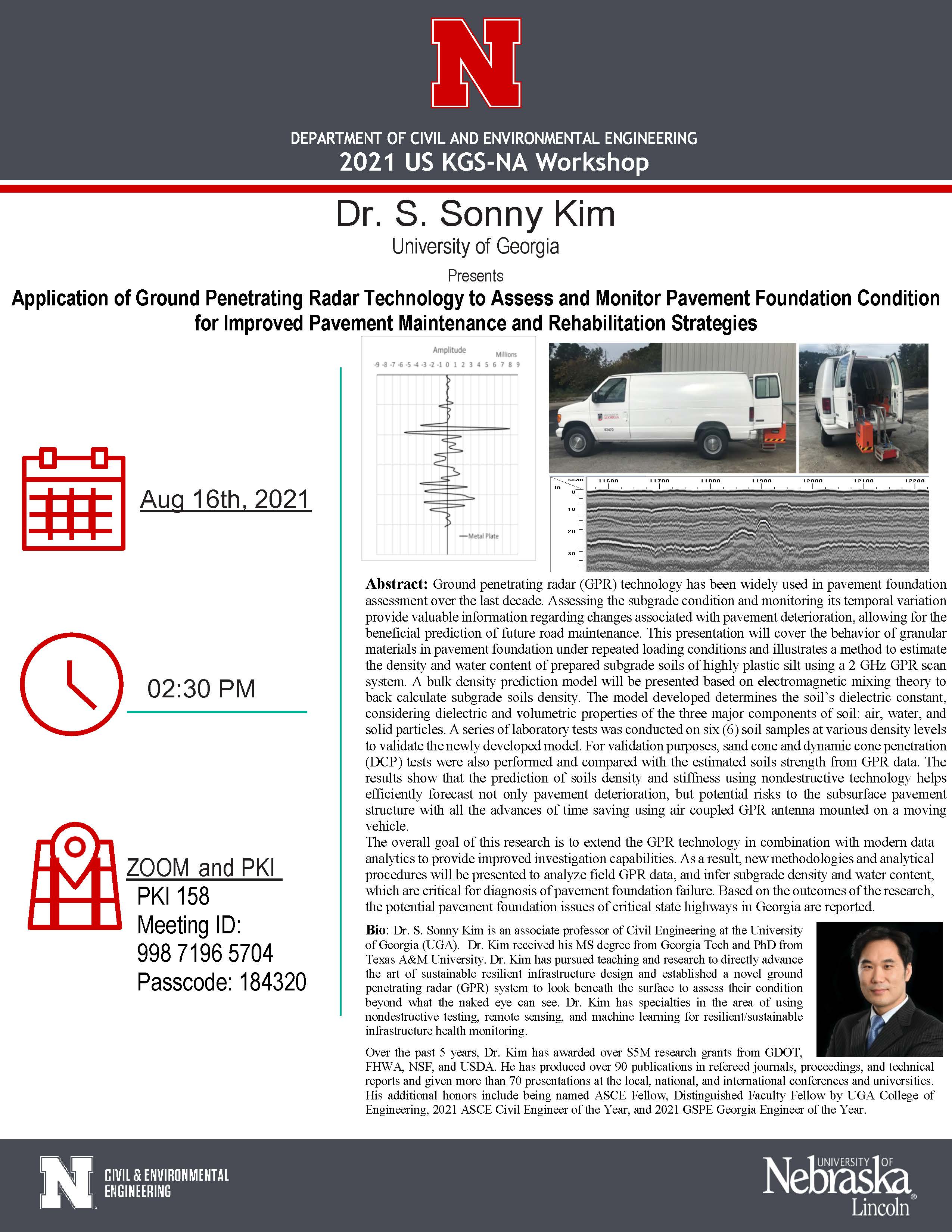
Abstract: Ground penetrating radar (GPR) technology has been widely used in pavement foundation assessment over the last decade. Assessing the subgrade condition and monitoring its temporal variation provide valuable information regarding changes associated with pavement deterioration, allowing for the beneficial prediction of future road maintenance. This presentation will cover the behavior of granular materials in pavement foundation under repeated loading conditions and illustrates a method to estimate the density and water content of prepared subgrade soils of highly plastic silt using a 2 GHz GPR scan system. A bulk density prediction model will be presented based on electromagnetic mixing theory to back calculate subgrade soils density. The model developed determines the soil’s dielectric constant, considering dielectric and volumetric properties of the three major components of soil: air, water, and solid particles. A series of laboratory tests was conducted on six (6) soil samples at various density levels to validate the newly developed model. For validation purposes, sand cone and dynamic cone penetration (DCP) tests were also performed and compared with the estimated soils strength from GPR data. The results show that the prediction of soils density and stiffness using nondestructive technology helps efficiently forecast not only pavement deterioration, but potential risks to the subsurface pavement structure with all the advances of time saving using air coupled GPR antenna mounted on a moving vehicle.
The overall goal of this research is to extend the GPR technology in combination with modern data analytics to provide improved investigation capabilities. As a result, new methodologies and analytical procedures will be presented to analyze field GPR data, and infer subgrade density and water content, which are critical for diagnosis of pavement foundation failure. Based on the outcomes of the research, the potential pavement foundation issues of critical state highways in Georgia are reported.
Bio: Dr. S. Sonny Kim is an associate professor of Civil Engineering at the University of Georgia (UGA). Dr. Kim received his MS degree from Georgia Tech and PhD from Texas A&M University. Dr. Kim has pursued teaching and research to directly advance the art of sustainable resilient infrastructure design and established a novel ground penetrating radar (GPR) system to look beneath the surface to assess their condition beyond what the naked eye can see. Dr. Kim has specialties in the area of using nondestructive testing, remote sensing, and machine learning for resilient/sustainable infrastructure health monitoring. Over the past 5 years, Dr. Kim has awarded over $5M research grants from GDOT, FHWA, NSF, and USDA. He has produced over 90 publications in refereed journals, proceedings, and technical reports and given more than 70 presentations at the local, national, and international conferences and universities. His additional honors include being named ASCE Fellow, Distinguished Faculty Fellow by UGA
More details at: https://unl.zoom.us/j/99871965704